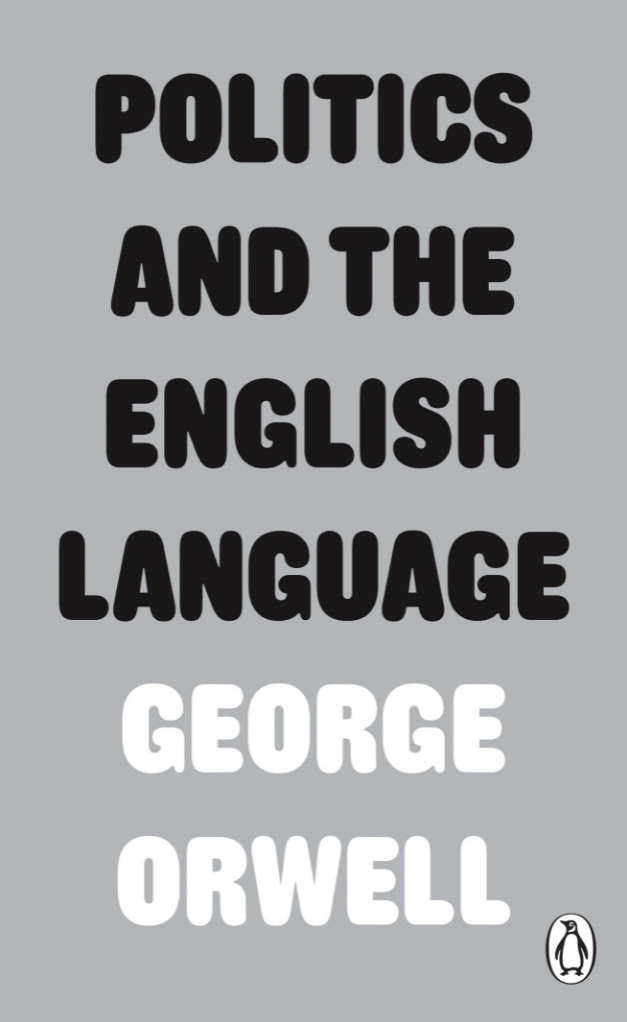Stimulating, thought provoking, but flawed.


Transferred, and very slightly amended, from an old Amazon UK review.
This tiny 20 or so page pamphlet is not really a book.
As well as containing the essay boldly if drably emblazoned on the cover, there’s also a very brief review of Hitler’s Mein Kampf. An odd pairing at first glance, but less so when one considers the subject of the first essay in broader terms. In fact Orwell’s review of Mein Kampf is a succinct example of the clarity and concision advocated in the main foregoing essay.
I’ll not say any more about Orwell’s review of the book that helped launch Hitler on his ill-started career here. So, to the main event. In discussing the relationship of politics to the English language, Orwell begins by using five examples of what he deems to be turgid, pretentious and, in several instances, largely meaningless prose, thereby attacking pretentiousness and politicking. Having given examples, he extracts five principles of poor English usage – his ‘catalogue of swindles and perversion’ – giving them such names as ‘dying metaphor’, and ‘pretentious diction.’
He also puts forward six principles he feels writers ought to follow. Essentially it all boils down to clarity, honesty, concision and simplicity, as basics, with freshness and vividness, should you choose to use metaphor, as the icing on the cake. As some other reviewers of this little publication have observed, Orwell is oversimplifying things drastically to make his points, and even admits he’s guilty of the sins he’s throwing stones at. But this remains a pretty well written case for clarity, honesty and transparency in writing and thinking.
Despite this, and despite some rather unconvincing caveats from Orwell himself, this has the salty tang of Canute against the waves about it. And if he’s right about some things (say for example ‘politics and the debasement of language’) he’s flat wrong about others: both the clichés he refers to on p. 17 (read it to find out they are!) are still alive and well and, whether by the same rules as biology or not, languages and their usages certainly do evolve, an idea he doesn’t seem entirely happy with.
Ultimately I disagree with his reductive and proscriptive stance. Yes language can be and often is political, and yes it can be and often is used to ‘humbug’ us, and ‘give an appearance of solidity to pure wind’ (his objection to lazy off-the-shelf language and its anaesthetic affect on human consciousness is put beautifully, and remains a challenge to us now, perhaps even more so in our info-saturated cyber age). But language is also a rich, evolving, free-flowing mode of human expression, and to seek to control it as Orwell seems to want to do here, is to sit Canute like, before the waves.
Certainly I’ll be thinking about his list of rules, and trying perhaps to employ some of them; clarity and concision – basically the trimming away of verbal fat – being the most obvious and compelling aims. But, unlike Orwell, I won’t be consigning any phrases (except perhaps the new-speak of business culture?) to any kind of literary dustbin.
As others have noted, given the subject, and the slightness of this publication, the typos (particularly egregious is ‘turning’ rendered as ‘turmng’, in a note on p. 7.) are inexcusable!
Stimulating and thought provoking, but something of a flawed oddity, both in itself, and in this tiny, slim format.
